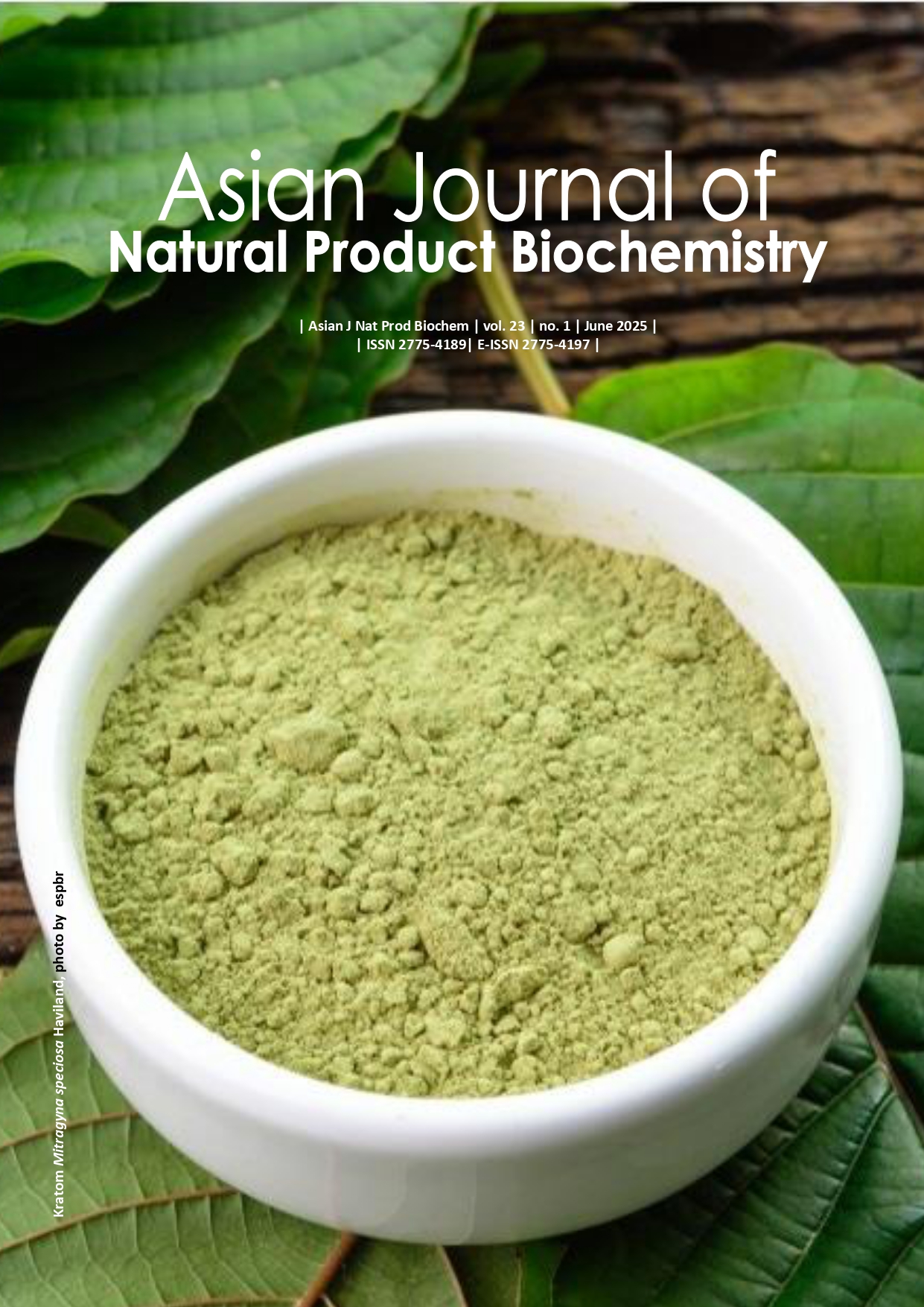Pharmacognostic characterization and biological activities of Aponogeton crispus and A. rigidifolius
##plugins.themes.bootstrap3.article.main##
Abstract
Abstract. Sarveswaran R, Jayasuriya WJAB, Dias B, Kariyawasam I, Hettiarachchi P, Suresh S. 2025. Pharmacognostic characterization and biological activities of Aponogeton crispus and A. rigidifolius. Asian J Nat Prod Biochem 23: 1-10. The potential anti-inflammatory effects of the plant family Aponogetonaceae have yet to be widely studied despite the existing ethnomedicinal evidence. This study aimed to investigate the pharmacognostic characteristics and pharmacological activities of Aponogeton crispus Thunb. and Aponogeton rigidifolius H.Bruggen plants. Anti-inflammatory and anti-hyperglycemia-related bioactivities of these plants were evaluated using well-established in vivo and in vitro methods. The safety profiles of the aqueous plant extracts were investigated in acute and chronic toxicity studies. Significance among different test groups in each assay was analyzed statistically. Reducing sugars, amino acids, alkaloids, flavonoids, and polyphenols were found in the preliminary phytochemical screening. In pharmacological assessments, aqueous extracts of A. crispus at 120 mg/kg showed the highest inhibition of carrageenan-induced rat paw edema, indicating its significant therapeutic potential. The percentage reduction in acetic acid-induced writhes was 46.48±3.46% for A. crispus and 54.22±2.10% for A. rigidifolius. Both extracts significantly reduced the body temperature of test rats at the third and fourth hour in brewer's yeast-induced pyrexia. Moreover, both plants showed appreciable safety profiles in 2,000 mg/kg dose. The study concludes that both A. crispus and A. rigidifolius plants possess explicit pharmacognostic characteristics, show significant therapeutic effects against the cardinal signs of inflammation and hyperglycemia, also exhibit no in vivo toxicities.

 https://orcid.org/0000-0001-8408-9548
https://orcid.org/0000-0001-8408-9548